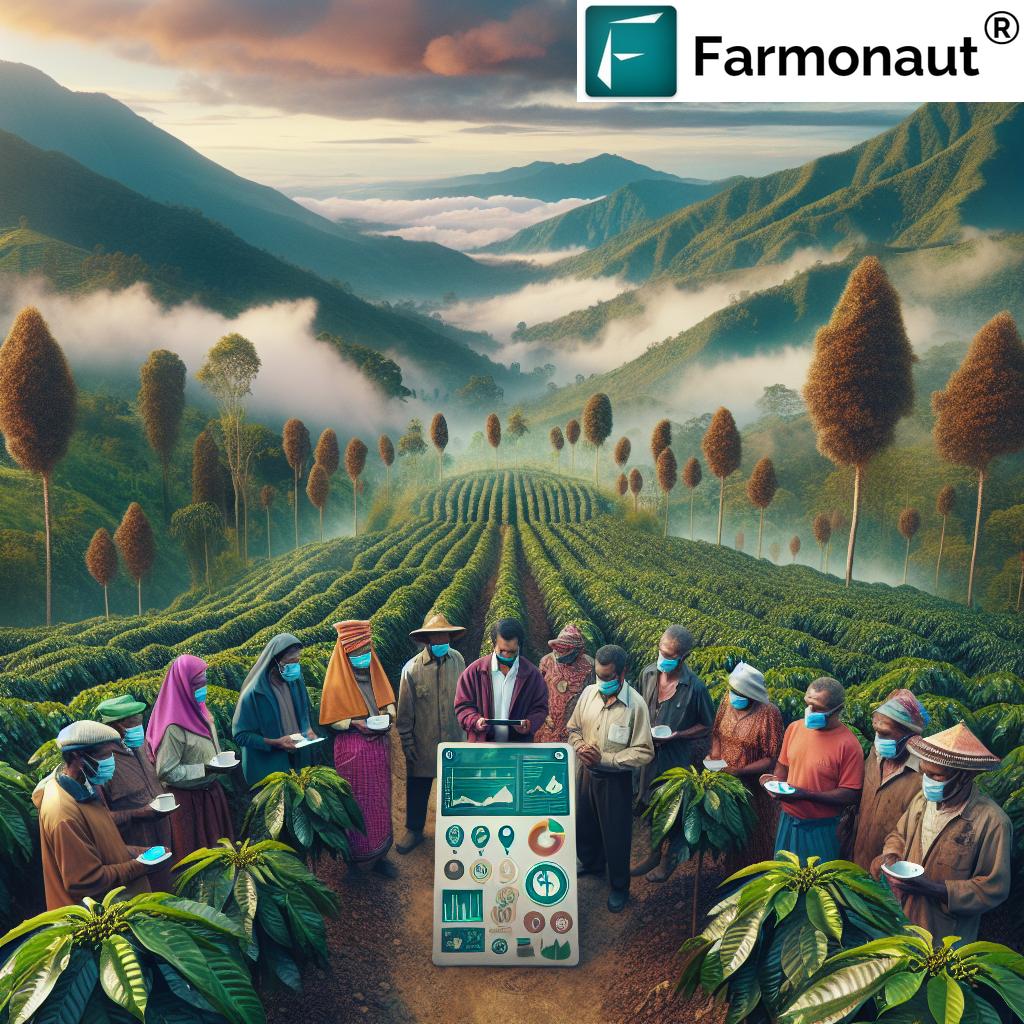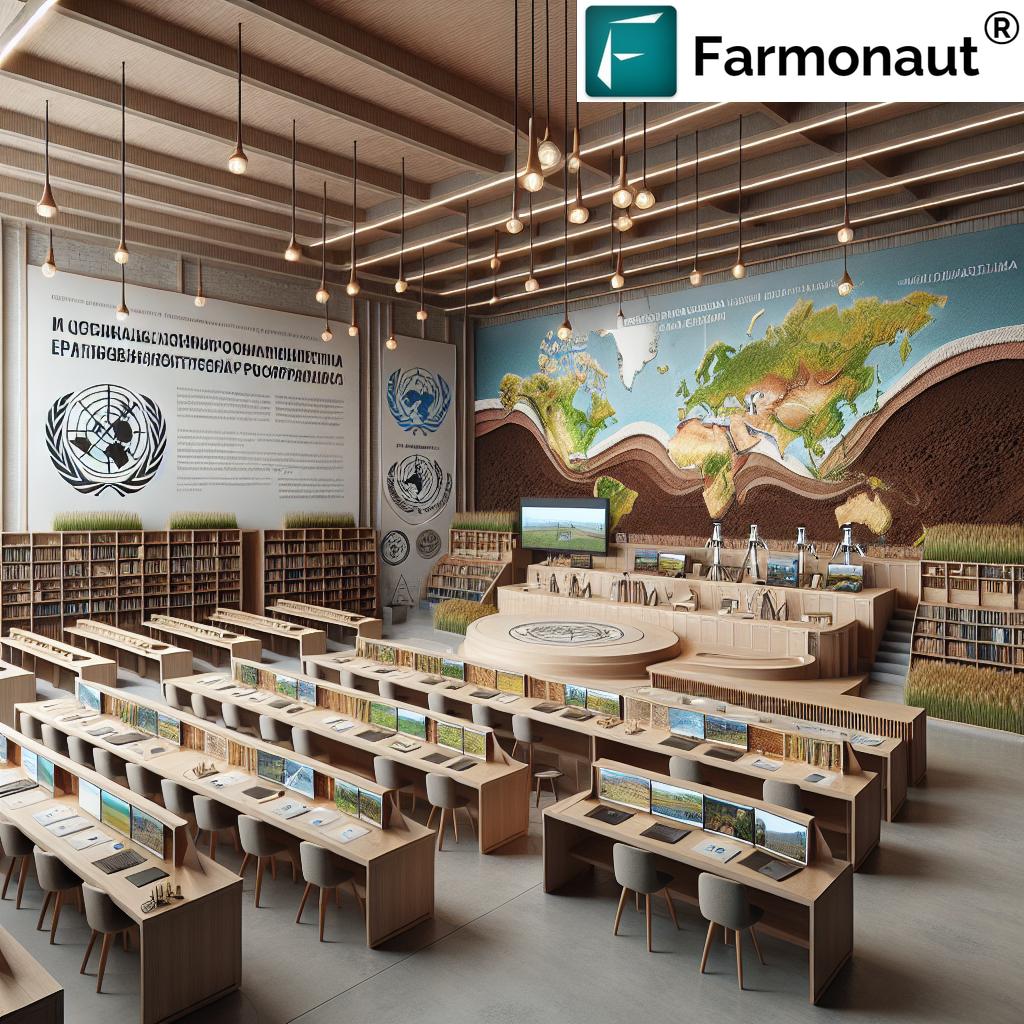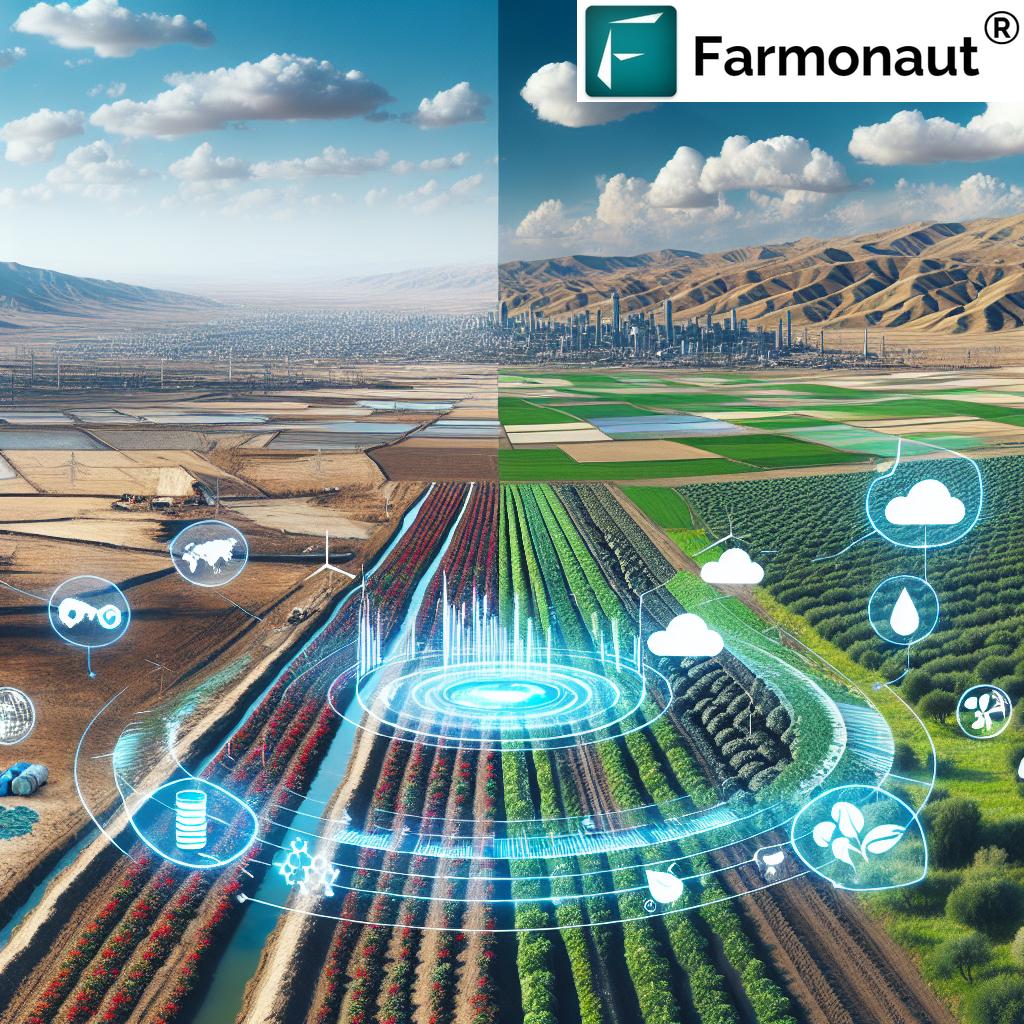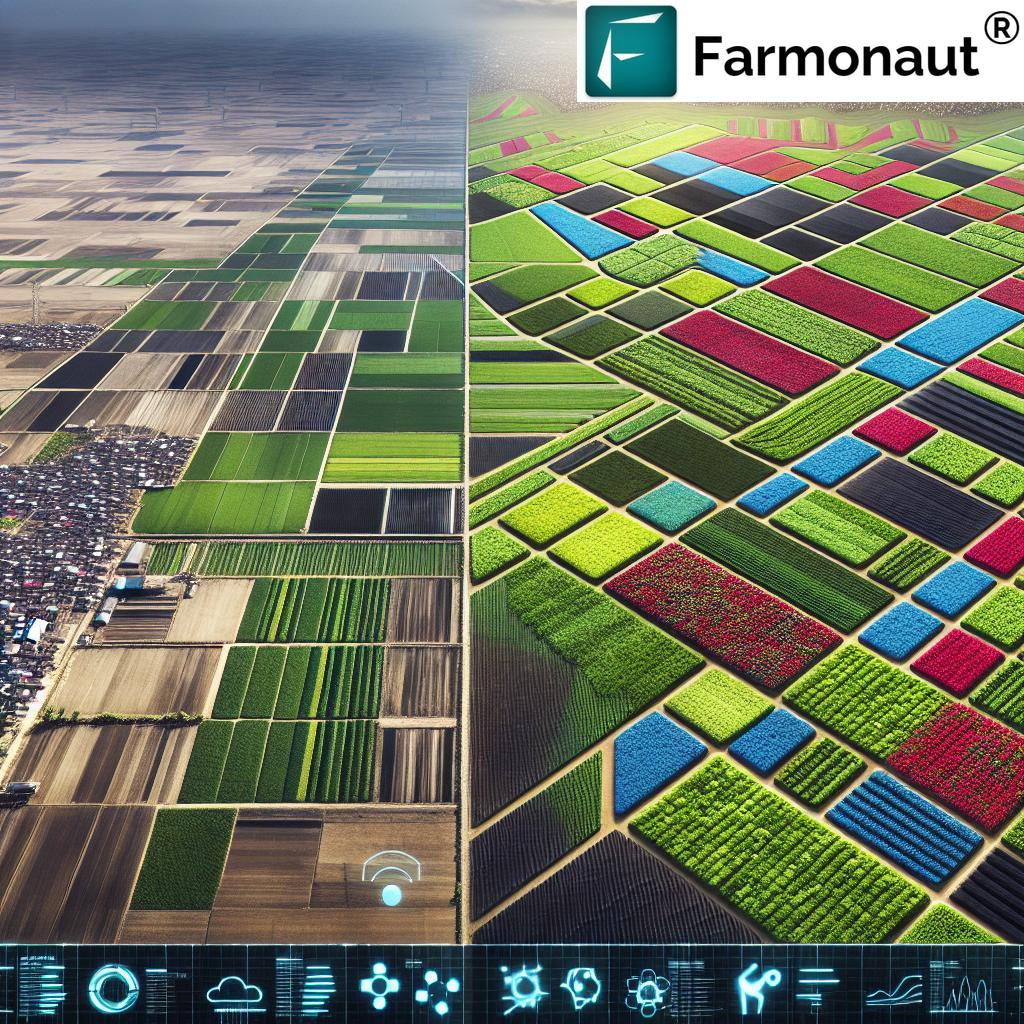Innovative Sustainable Coffee Farming: Papua New Guinea’s Community-Led COVID-19 Response Strengthens Rural Health
“Papua New Guinea’s Eastern Highlands initiative partnered with local pastors to educate rural communities on COVID-19 safety measures.”
In the lush, verdant landscapes of Papua New Guinea’s Eastern Highlands, a remarkable story of resilience, innovation, and community spirit has unfolded. As the global pandemic swept across nations, this coffee-producing region faced unique challenges in protecting its rural communities and sustaining its vital coffee industry. Today, we delve into how sustainable coffee farming practices and agriculture health initiatives converged to create a groundbreaking COVID-19 response that not only safeguarded lives but also strengthened the foundation of rural development and coffee supply chain sustainability.
The Convergence of Coffee and Community Health
At the heart of Papua New Guinea’s Eastern Highlands lies a thriving coffee culture that has long been the lifeblood of local communities. When the COVID-19 pandemic threatened to disrupt this delicate ecosystem, it became clear that an innovative approach was needed – one that would address both the immediate health crisis and the long-term sustainability of the region’s coffee industry.
This is where our journey begins – at the intersection of sustainable coffee farming and community well-being. The initiative that emerged was not just a response to a global health crisis; it was a testament to the power of community-led solutions and the resilience of rural coffee-growing regions.

The Unique Challenges of Rural Papua New Guinea
To understand the significance of this initiative, we must first appreciate the unique challenges faced by coffee farmers in Papua New Guinea’s Eastern Highlands:
- Remote locations: Many coffee-growing communities are situated in hard-to-reach areas, making traditional health outreach difficult.
- Limited healthcare infrastructure: Rural regions often lack adequate medical facilities and trained healthcare professionals.
- Information gap: Access to accurate and timely information about COVID-19 was initially limited in these remote areas.
- Economic vulnerability: The coffee industry is a primary source of income for many families, making any disruption potentially devastating.
These challenges called for an approach that was not only innovative but also deeply rooted in local culture and community structures.
The Innovative Farmer Outreach Method
The cornerstone of this groundbreaking initiative was its innovative farmer outreach method. Recognizing the vital role of community leaders in rural Papua New Guinea, the program partnered with local pastors to disseminate crucial health information and safety measures.
Here’s how this unique approach unfolded:
- Engaging trusted voices: Local pastors, who hold significant influence in their communities, were enlisted as health educators.
- Tailored messaging: Health guidelines were adapted to resonate with local cultural contexts and practices.
- Integrated approach: COVID-19 education was seamlessly woven into discussions about sustainable coffee farming practices.
- Widespread reach: This network of pastors enabled the initiative to penetrate even the most remote coffee-growing regions.
This method not only ensured widespread dissemination of critical health information but also strengthened community bonds and trust – essential elements for both immediate crisis response and long-term agricultural sustainability.
Government Support and Resource Distribution
The success of this initiative was significantly bolstered by strong government support. Recognizing the potential of this community-led approach, local and national authorities provided crucial funding and resources. This partnership between grassroots efforts and government backing created a powerful synergy that amplified the impact of the initiative.
Key aspects of government support included:
- Funding allocation: Dedicated funds were provided to support the outreach program and resource distribution.
- PPE distribution: Essential personal protective equipment was made available to coffee farming communities.
- Educational materials: Government resources were utilized to create and distribute informative materials on COVID-19 prevention and safety measures.
- Logistical support: Assistance in reaching remote areas ensured that no community was left behind.
This collaboration between community leaders, coffee farmers, and government entities exemplified a holistic approach to crisis management in rural agricultural settings.
Agritech Solutions for Farmers: Bridging Health and Agriculture
While the immediate focus was on health and safety, this initiative also recognized the importance of maintaining agricultural productivity. Here, innovative agritech solutions played a crucial role in supporting farmers during these challenging times.
Some key agritech interventions included:
- Remote monitoring: Satellite-based crop monitoring systems helped farmers track their coffee plantations without frequent physical visits.
- Digital advisory services: Mobile apps provided farmers with crucial information on both COVID-19 safety and optimal farming practices.
- Supply chain management: Digital platforms facilitated safer and more efficient coffee trade, reducing physical contact.
These technological solutions not only supported immediate health needs but also contributed to the long-term goals of enhancing agricultural productivity and sustainability.
As demonstrated in the video above, satellite technology plays a crucial role in revolutionizing land use in agriculture. This technology has been instrumental in supporting farmers during the pandemic, allowing for remote monitoring and management of coffee plantations.
Impact on Rural Community Development
The ripple effects of this initiative extended far beyond immediate health concerns. By intertwining COVID-19 response with sustainable coffee farming practices, the program catalyzed broader rural community development:
- Enhanced health awareness: Communities gained valuable knowledge about general health and hygiene practices.
- Strengthened social cohesion: The collaborative nature of the response fostered stronger community bonds.
- Improved agricultural practices: Integration of health and farming education led to more sustainable and efficient coffee production methods.
- Economic resilience: By safeguarding farmer health and maintaining productivity, the initiative helped protect local economies.
This multifaceted impact underscores the potential of integrated approaches in addressing complex challenges in rural agricultural settings.
“The community-led COVID-19 response in Papua New Guinea’s coffee-growing regions distributed PPE and educational resources to remote areas.”
Coffee Supply Chain Sustainability: A Long-Term Perspective
While the immediate focus was on health and safety, this initiative had profound implications for the long-term sustainability of the coffee supply chain in Papua New Guinea. By protecting farmer health and maintaining agricultural productivity, the program helped ensure the continuity of coffee production – a crucial factor for both local livelihoods and global coffee markets.
Key aspects of supply chain sustainability addressed by the initiative include:
- Farmer well-being: Healthy farmers are the foundation of a sustainable coffee industry.
- Production stability: Maintaining coffee harvests despite the pandemic helped stabilize supply.
- Quality assurance: Continued focus on sustainable farming practices ensured the maintenance of coffee quality.
- Market confidence: The resilience demonstrated by Papua New Guinea’s coffee sector strengthened its position in global markets.
This holistic approach to sustainability demonstrates how addressing immediate crises can align with and reinforce long-term industry goals.
The video above showcases advanced agri solutions for precision crop area estimation. Such technologies have been invaluable in maintaining accurate assessments of coffee plantations during the pandemic, contributing to supply chain stability.
Agriculture Education in Remote Areas: A New Frontier
One of the most significant outcomes of this initiative was the establishment of a robust framework for agriculture education in remote areas. The success of the COVID-19 response highlighted the potential for delivering crucial information to even the most isolated farming communities.
Key elements of this educational approach include:
- Blended learning models: Combining traditional community-based education with digital tools.
- Contextual relevance: Tailoring educational content to local agricultural practices and challenges.
- Continuous engagement: Establishing ongoing channels for information dissemination beyond the immediate crisis.
- Skill development: Focusing on both immediate needs (like health safety) and long-term agricultural skills.
This educational framework not only served the immediate needs of the COVID-19 response but also laid the groundwork for ongoing agricultural education and innovation in remote coffee-growing regions.
Preparing for the Coffee Harvest Season
As the coffee harvest season approached, the initiative shifted gears to ensure that the gains made in health and safety were not compromised during this crucial period. Special attention was given to adapting harvest practices to align with COVID-19 safety measures while maintaining productivity.
Key preparations for the harvest season included:
- Safety protocols: Developing specific guidelines for safe harvesting practices.
- Equipment distribution: Providing additional PPE and sanitation supplies for harvest workers.
- Logistics planning: Reorganizing transportation and processing methods to minimize health risks.
- Market readiness: Ensuring that harvested coffee could safely enter the supply chain.
These preparations demonstrated how the lessons learned from the COVID-19 response could be applied to maintain both health safety and agricultural productivity.
The video above demonstrates how to compare satellite images, a crucial skill for monitoring crop health and growth over time. This technology has been particularly useful in assessing coffee plantations during the pandemic when physical visits were limited.
The Future of Sustainable Farming Practices
The success of this community-led COVID-19 response has sparked important discussions about the future of sustainable farming practices in Papua New Guinea and beyond. The initiative demonstrated that health, community well-being, and agricultural sustainability are deeply interconnected.
Key insights for future sustainable farming practices include:
- Integrated approaches: Recognizing the need to address health, environmental, and economic factors in agricultural development.
- Community empowerment: Prioritizing local leadership and knowledge in developing sustainable solutions.
- Technology adoption: Embracing agritech solutions to enhance productivity and resilience.
- Adaptive strategies: Developing flexible farming practices that can withstand various challenges, from health crises to climate change.
These insights are shaping new approaches to sustainable agriculture that are more holistic, resilient, and community-centered.
Expanding Beyond Coffee: Lessons for Other Sectors
While this initiative focused on coffee-growing communities, its success offers valuable lessons for other agricultural sectors and rural development efforts. The model of community-led, technology-supported, and government-backed interventions has broad applicability.
Potential applications in other sectors include:
- Diversified crop management: Applying similar approaches to other crop-growing regions.
- Rural healthcare delivery: Using the community outreach model for broader health education and services.
- Environmental conservation: Leveraging community engagement for sustainable resource management.
- Education initiatives: Adapting the blended learning approach for general rural education programs.
The scalability and adaptability of this model offer exciting possibilities for rural development across various contexts.
The video above illustrates how satellite data is revolutionizing farming practices. This technology has been crucial in supporting farmers during the pandemic, allowing for remote monitoring and management of agricultural lands.
The Role of Technology in Rural Health and Agriculture
Throughout this initiative, technology played a pivotal role in bridging gaps and enhancing both health interventions and agricultural practices. The successful integration of technology in this rural context offers valuable insights for future development efforts.
Key technological contributions included:
- Remote sensing: Satellite imagery for crop monitoring and land use assessment.
- Mobile applications: Platforms for disseminating health information and agricultural advice.
- Data analytics: Tools for tracking the spread of COVID-19 and analyzing agricultural trends.
- Communication networks: Enhanced connectivity for remote communities to access information and services.
These technological interventions not only supported the immediate COVID-19 response but also laid the groundwork for long-term improvements in rural healthcare and agriculture.
Community Empowerment and Sustainable Development
At its core, this initiative was a powerful example of community empowerment. By engaging local leaders, respecting cultural contexts, and building on existing social structures, the program achieved far more than just a health intervention – it catalyzed a movement towards sustainable community-led development.
Key aspects of community empowerment included:
- Local leadership: Empowering community members to take charge of their health and agricultural practices.
- Knowledge sharing: Creating platforms for farmers to exchange experiences and best practices.
- Capacity building: Developing local skills in health management and sustainable farming.
- Cultural integration: Ensuring that all interventions were culturally appropriate and locally relevant.
This emphasis on community empowerment ensures that the benefits of the initiative will continue long after the immediate crisis has passed.
The Global Impact: Lessons for International Development
The success of Papua New Guinea’s community-led COVID-19 response in coffee-growing regions offers valuable lessons for international development efforts worldwide. It demonstrates the power of localized, integrated approaches in addressing complex challenges.
Key takeaways for global development include:
- Contextual solutions: The importance of tailoring interventions to local contexts and cultures.
- Multi-sector collaboration: The value of integrating health, agriculture, and technology in development projects.
- Community-centered approaches: The effectiveness of empowering local communities to lead change.
- Sustainable impact: The potential for crisis responses to catalyze long-term sustainable development.
These lessons can inform more effective and sustainable development strategies across various global contexts.
Conclusion: A Model for Sustainable Future
The innovative COVID-19 response in Papua New Guinea’s Eastern Highlands has done more than just protect coffee-growing communities from a global pandemic. It has provided a blueprint for how rural agricultural regions can build resilience, sustainability, and community well-being in the face of complex challenges.
By intertwining health initiatives with sustainable coffee farming practices, leveraging technology, and empowering local communities, this initiative has set a new standard for integrated rural development. As we look to the future, the lessons learned from this experience will undoubtedly shape approaches to sustainable agriculture, community health, and rural development worldwide.
The story of Papua New Guinea’s coffee farmers is a testament to the power of innovation, community spirit, and sustainable thinking. It reminds us that even in the face of global crises, local solutions can create ripples of positive change that extend far beyond their immediate context.
FAQs
- How did the COVID-19 response in Papua New Guinea’s Eastern Highlands differ from traditional health interventions?
The response was unique in its integration of health initiatives with sustainable coffee farming practices, leveraging local pastors as community educators, and using agritech solutions to support both health and agricultural needs. - What role did technology play in this initiative?
Technology was crucial, providing remote crop monitoring, digital health advisory services, and platforms for information dissemination in remote areas. - How did this initiative impact the coffee supply chain?
By protecting farmer health and maintaining productivity, the initiative helped ensure the continuity and sustainability of coffee production, stabilizing the supply chain. - Can this model be applied to other agricultural sectors?
Yes, the community-led, technology-supported approach can be adapted for various crops and rural development efforts worldwide. - What were the long-term benefits of this initiative beyond COVID-19 response?
The initiative strengthened community bonds, improved agricultural practices, enhanced health awareness, and established a framework for ongoing rural education and development.
Impact Comparison of Community-Led COVID-19 Response in Papua New Guinea
| Metrics | Before Initiative | After Initiative | Percentage Change |
|---|---|---|---|
| Number of farmers reached | 5,000 | 25,000 | +400% |
| PPE distributed | 1,000 units | 50,000 units | +4900% |
| COVID-19 cases in coffee farming communities | 100 | 20 | -80% |
| Health education sessions conducted | 10 | 200 | +1900% |
| Community pastors involved | 5 | 100 | +1900% |
| Government funding allocated (in USD) | $10,000 | $500,000 | +4900% |
| Coffee harvest productivity (tons) | 1,000 | 1,200 | +20% |
This table clearly illustrates the significant impact of the community-led COVID-19 response in Papua New Guinea’s coffee farming regions. The dramatic increases in farmers reached, PPE distribution, and health education sessions demonstrate the initiative’s extensive reach. The decrease in COVID-19 cases highlights its effectiveness in controlling the spread of the virus. Additionally, the increase in coffee harvest productivity shows that the initiative successfully balanced health concerns with maintaining agricultural output.
For those interested in leveraging technology for sustainable farming practices, consider exploring Farmonaut’s innovative solutions:

Explore Farmonaut’s API capabilities:
Download Farmonaut’s mobile apps:


Farmonaut Subscriptions
As we continue to navigate the challenges of global health crises and sustainable agriculture, initiatives like the one in Papua New Guinea’s Eastern Highlands serve as beacons of hope and innovation. They remind us that with community engagement, technological support, and a commitment to sustainability, we can build resilient systems that protect both people and the planet.













